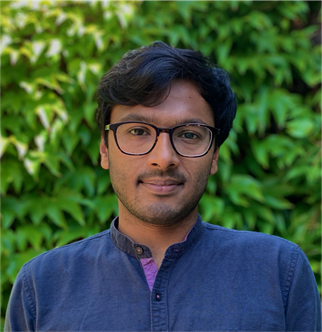Interview with Dr. Bharath Ganesh

Dr. Bharath Ganesh, Assistant Professor of Media Studies at the Centre for Media and Journalism Studies (Faculty of Arts), won the 2021 Comenius Teaching Fellowship for education innovation for his project called ‘Pixascope: Big Visual Analytics for Social Media’.
Congratulations! Could you tell us what your project is about?
Thank you! My Comenius project is dedicated to “Pixascope”, a software package for students and researchers to analyse large-scale visual datasets, like those we can collect from social media platforms. Currently, much of the research on large datasets focuses on text, rather than images. This project hopes to give students the tools to use cutting-edge technology to analyse visual culture and enhance teaching and learning in RUG’s MA track in Social Media & Society. While visual platforms such as Instagram and TikTok are growing in prominence, education still prioritises text. Pixascope hopes to change that by providing a new set of tools and an educational programme alongside them.
Is this a Big Data topic?
Yes. Currently, an immense volume of cultural data is available online. Therefore, digital and computational methods have become more prominent in media studies. Currently, teaching these methods centres on text, paying little attention to visual content that is crucial to our everyday lives online. While students can work with big textual data, no software exists to support their study of big visual data. Pixascope is also a collaborative project. I’m very lucky to be working with Herbert Kruitbosch, an expert at CIT’s Data Science team, who will help us build the tools that students need to work with large visual datasets.
How did you get an idea for your project?
I wanted to give my students a tool to analyse big visual data without a need for extensive programming skills. That’s why we decided to develop a collection of tools to support students without programming knowledge to take advantage of visualization, machine learning, and computer vision technology by using teaching tools used frequently in the digital humanities.
Why is visual data so important?
When we scroll through the social media platforms that many of us use on a daily basis, we are confronted with hundreds of images. This is incredibly important for the study of contemporary culture. I want to empower our students to learn to contribute to these debates—and working with large sets of empirical data is crucial for them to build that capacity. Today, political campaigns, heritage institutions, advertisers, and social movements (to name a few examples) all make extensive use of visual content on the web. These are essential subjects of study to understand how media and technology are affecting our cultures and societies.
It sounds very ambitious for a project of 13 months duration. What is your secret?
Well it’s not a very exciting secret. We don’t see Pixascope as a simple, one-stop desktop application with a single user interface, which is not possible to develop within 13 months. Instead, we envision Pixascope as a virtual programming environment, a digital humanities toolbox that relies on existing open-source technology. It will all be tied together with instruction videos, in-class tutorials, and examples so students are able to use these tools.
How will you involve students in your project?
Students will be involved in testing and evaluating the tools, sharing their analytical workflows within Pixascope and will make recommendations for improvements to the tools as well as the instructional materials. They will share their work on a website, giving useful examples to other students across the Netherlands (and the world) who can use the tools for free. We will also bring in a panel of experts on social media, digital culture, and visual methods in an exhibition at the end of the project. The panel will select the best project from the course, and they will be funded to present their work at an academic conference.
What is your vision on education?
As an educator, empowerment and inclusion drive my teaching practice. I hope to enable students to address societal challenges by encouraging the development of independent research skills, critical thinking, and the knowledge needed to contribute to dynamic media industries. I aim for my teaching to foster self-efficacy by enhancing student motivation in performing academic tasks and building the confidence needed to make an impact in the careers that students pursue.
And the last question: what support from UG did you receive and was it useful?
I participated in information sessions organized by the Teaching Academy Groningen. They provided all relevant information needed to prepare an application. Moreover, they also worked very hard to provide me with a crucial feedback session with Faculty Fruit — that helped a lot. I highly recommend those! They really streamline your proposal.
Thank you for your time, Bharath!
Teaching Academy Groningen wishes you success with your ambitious and exciting project!
| Last modified: | 02 May 2022 10.01 a.m. |
More news
-
04 July 2025
University of Groningen awards different prizes during Ceremony of Merits
The UG awarded different prizes to excellent researchers and students during the Ceremony of Merits on 4 July 2025.
-
02 July 2025
Relinde Weil reappointed as a member of the Supervisory Board UG
The Minister of Education has reappointed Relinde Weil for a second term as a member of the Supervisory Board of the University of Groningen.
